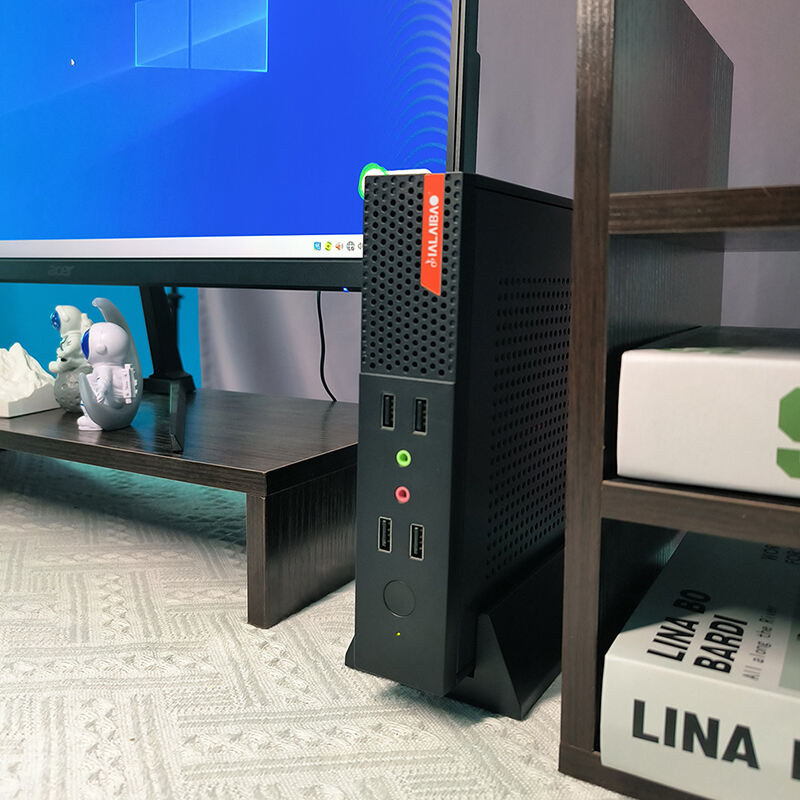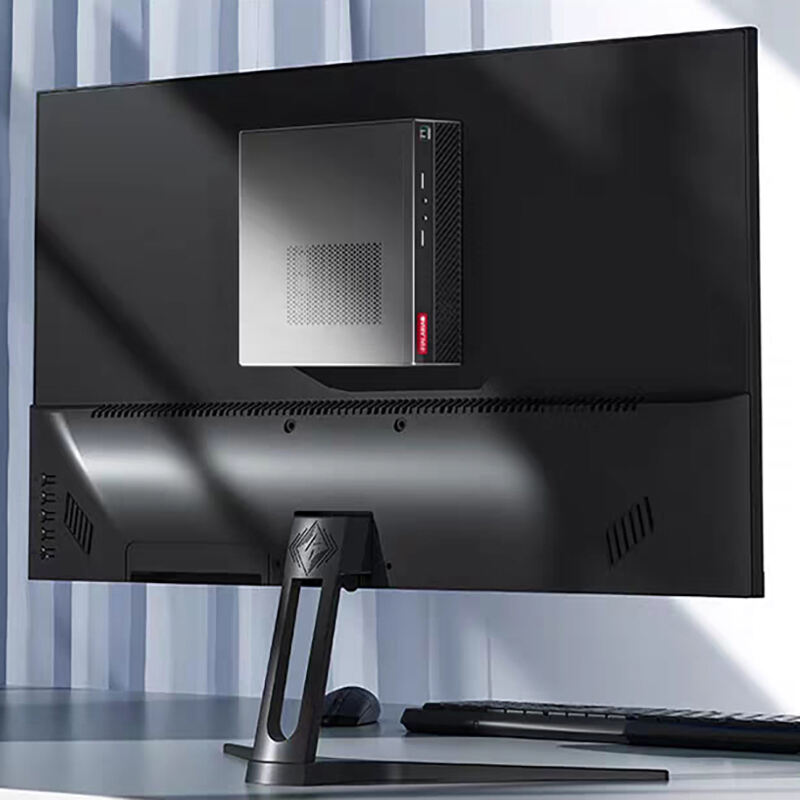The manufacturing sector is undergoing a dramatic transformation as smart technologies and connected devices reshape traditional factory floors. At the heart of this evolution are mini PCs, compact yet powerful computing solutions that serve as the backbone for Internet of Things (IoT) implementations in modern manufacturing facilities. These small form factor computers are revolutionizing how manufacturers collect data, automate processes, and optimize operations with unprecedented precision and efficiency.
The integration of mini PCs in IoT manufacturing environments represents a paradigm shift from conventional industrial computing solutions. Their compact size, robust processing capabilities, and versatile connectivity options make them ideal candidates for managing the complex web of sensors, actuators, and smart devices that comprise today's smart factories. As manufacturing facilities worldwide embrace Industry 4.0 principles, mini PCs have emerged as essential components in bridging the gap between physical operations and digital intelligence.
Industrial-grade mini PCs are engineered to withstand the demanding conditions of manufacturing facilities. These robust devices feature fanless designs, solid-state storage, and reinforced casings that protect against dust, vibration, and extreme temperatures. The hardware specifications typically include Intel or AMD processors optimized for industrial applications, sufficient RAM for real-time data processing, and multiple storage options to ensure reliable operation in mission-critical scenarios.
Advanced connectivity options are fundamental to mini PCs in IoT manufacturing applications. These systems come equipped with multiple USB ports, serial interfaces, ethernet connections, and wireless capabilities, enabling seamless integration with various industrial devices and sensors. The versatile I/O options support both legacy manufacturing equipment and cutting-edge IoT devices, making mini PCs ideal for modernizing existing production facilities.
Mini PCs in manufacturing environments run specialized operating systems designed for industrial automation and IoT applications. These platforms provide real-time processing capabilities, enhanced security features, and robust support for industrial communication protocols. The software stack typically includes SCADA systems, manufacturing execution systems (MES), and IoT middleware that facilitate seamless data collection and process control.
Custom applications and analytics software deployed on these mini PCs enable manufacturers to implement predictive maintenance strategies, optimize production schedules, and monitor quality control parameters in real-time. The software ecosystem supports edge computing capabilities, allowing for rapid decision-making and reduced latency in critical manufacturing processes.
The deployment of mini PCs in IoT manufacturing requires careful planning and strategic integration with existing infrastructure. Manufacturers often adopt a phased approach, starting with pilot programs in specific production areas before expanding to facility-wide implementation. The compact size of mini PCs allows for flexible mounting options, whether integrated directly into machinery or installed in control cabinets.
Successful integration involves establishing reliable communication networks, implementing appropriate security measures, and ensuring seamless data flow between mini PCs and central management systems. The ability to retrofit existing equipment with IoT capabilities through mini PCs provides manufacturers with a cost-effective path to digital transformation without requiring complete system overhauls.
The implementation of mini PCs in IoT manufacturing environments delivers substantial operational benefits and measurable returns on investment. Manufacturers report significant improvements in production efficiency, reduced downtime through predictive maintenance, and enhanced quality control through real-time monitoring and analytics. The compact form factor and energy efficiency of mini PCs also contribute to reduced infrastructure costs and lower power consumption.
Real-world implementations have demonstrated that mini PCs in IoT manufacturing can lead to operational cost reductions of up to 30% through optimized resource utilization and automated process control. The ability to collect and analyze vast amounts of production data enables manufacturers to identify bottlenecks, streamline workflows, and implement continuous improvement initiatives with greater precision.
The evolution of mini PCs in IoT manufacturing continues to accelerate with the introduction of new technologies and capabilities. Artificial intelligence and machine learning integration are enabling more sophisticated analytics and autonomous decision-making capabilities. Edge computing capabilities are becoming more robust, allowing for more complex processing tasks to be performed directly at the manufacturing edge.
Advanced visualization technologies, including augmented reality and digital twin implementations, are being powered by next-generation mini PCs, providing manufacturers with new ways to monitor and optimize their operations. The integration of 5G connectivity will further enhance the capabilities of mini PCs in IoT manufacturing, enabling ultra-low latency communications and support for massive IoT device deployments.

As the role of mini PCs in IoT manufacturing expands, industry standards and compliance requirements continue to evolve. Manufacturers must ensure their implementations adhere to emerging IoT security standards, data privacy regulations, and industry-specific compliance requirements. The development of standardized protocols and interfaces is facilitating greater interoperability and easier integration of mini PCs across different manufacturing environments.
Certification programs and industry guidelines are being established to ensure mini PCs meet the rigorous requirements of industrial IoT applications. These standards address aspects such as cybersecurity, reliability, and environmental sustainability, providing manufacturers with clear frameworks for implementing and maintaining their IoT infrastructure.
Mini PCs are ideal for industrial IoT applications due to their compact size, robust construction, extensive connectivity options, and ability to operate reliably in harsh manufacturing environments. They offer the perfect balance of processing power, energy efficiency, and durability required for industrial automation and data processing tasks.
Mini PCs enhance manufacturing efficiency by enabling real-time data collection and analysis, facilitating predictive maintenance, automating quality control processes, and providing detailed insights into production operations. Their integration with IoT devices and sensors allows for comprehensive monitoring and optimization of manufacturing processes.
Key security considerations include implementing robust network security protocols, ensuring regular software updates and patches, maintaining secure communication channels between devices, and establishing access control mechanisms. Manufacturers must also consider compliance with industry-specific security standards and data protection regulations.
